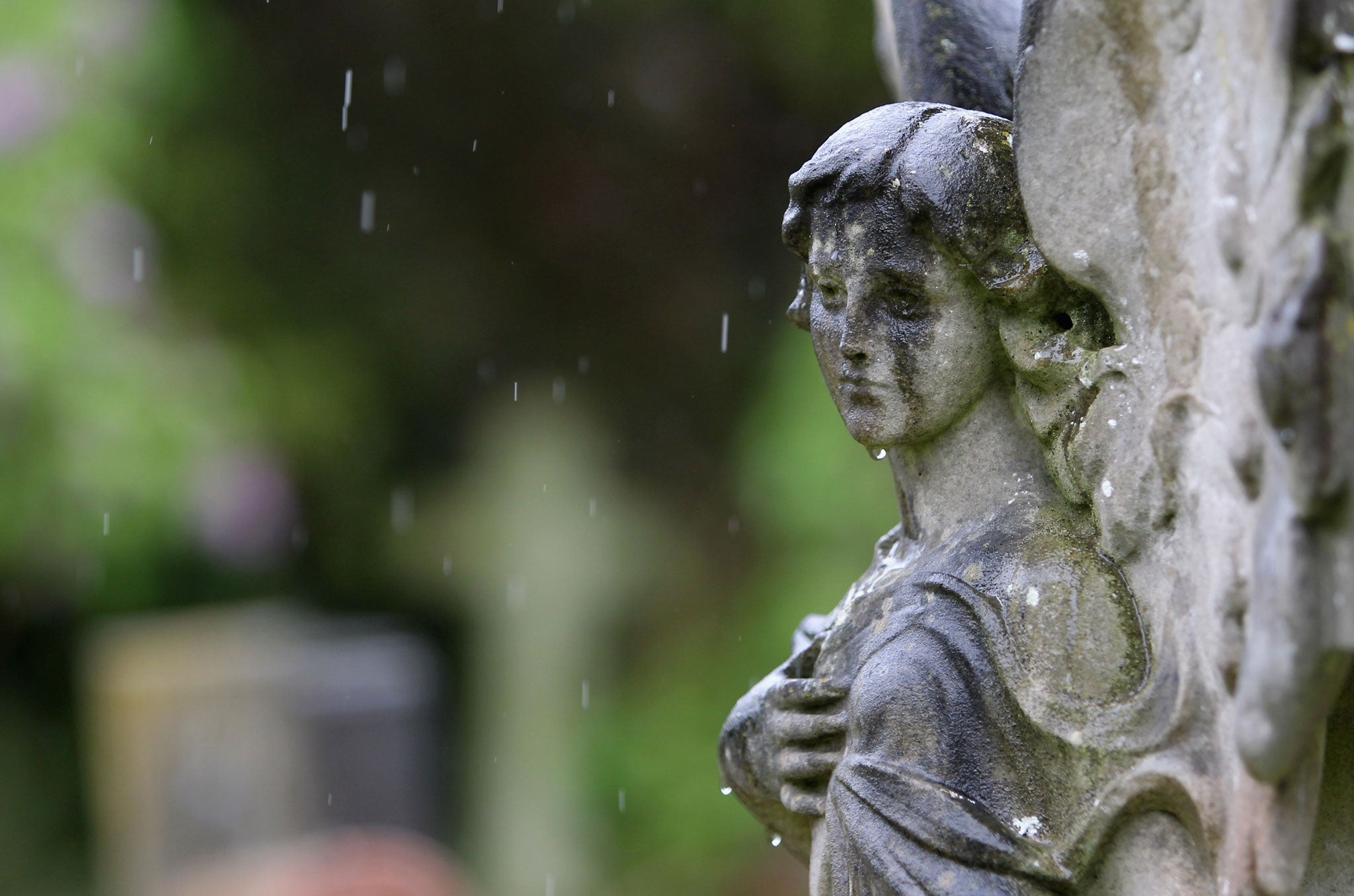Pity the men who suffer in silence
Men get less support from their friends than women in the aftermath of a bereavement

Heartfelt thanks to the readers who, following my recent column on treacherous husbands, reminded me of faithless wives, and thanks also to the 17 widowers who described their grief without remission, usually suffered in silence. Now the BBC’s Business Editor Robert Peston has broken that silence.
His wife and “best friend”, novelist Sian Busby, died of lung cancer last September, aged only 51. The previously vigorous and erudite Peston looks thinner, older, sadder, says he feels a “huge emptiness” and will not get over the loss. He has written a foreword to A Commonplace Killing, the last novel penned by Busby, as she was dying, a tender tribute. Another new book, Mum’s Way, remembers Angie, the wife of ex-miner Ian Millthorpe. She died of cancer in 2010, leaving behind eight children and a manual on how to raise them. For Millthorpe, “It is still as raw as the day she died”. Tears fell on every page I turned.
Julian Barnes cannot let go of his wife either. She was the literary agent Pat Kavanagh, who died in 2007. In his new book, Levels of Life, Barnes relives the time they had together. It upsets him that some friends have erased (or buried) all memories of Kavanagh and behave as if she never existed. The novelist reminds me of writer and academic Martin Jacques, who lost his beautiful, young wife Hari in December 1999, mother of their little baby boy. I had never before witnessed such wrenching, masculine sorrow. He too bravely refused to be a man and move on after a couple of months as was expected.
One of the widowers I mention above, only 39, wrote to say that if his heart still felt as if it was “being kicked to death” on the anniversary of his wife’s death next January, he would step under a train. His daughter is five. He didn’t give his name or address. I pray he doesn’t orphan his child.
We don’t commonly acknowledge true, everlasting, male fidelity, perhaps because it is quiet, not dramatic. Lucky are those whose love is as deep as the earth beneath their feet. But not when death parts them from their partners. They carry on of course – working, playing, raising children, even finding new lovers, but never stop mourning for that one person who was truly their other half, in body, heart and soul. Widows, in some ways, cope better because they have friends to lean on for emotional support. Real men don’t do that.
The great Noam Chomsky, 84, was in London last week talking about wars and injustices. Carol, his wife of 60 years, died in 2008. He once told an interviewer that his best male friend had not once talked to him about Carol. Women, he said, managed bereavement better because they “talk and support each other”. Tragic, but true. In the darkest of times we women are luckier than men.

Join our commenting forum
Join thought-provoking conversations, follow other Independent readers and see their replies